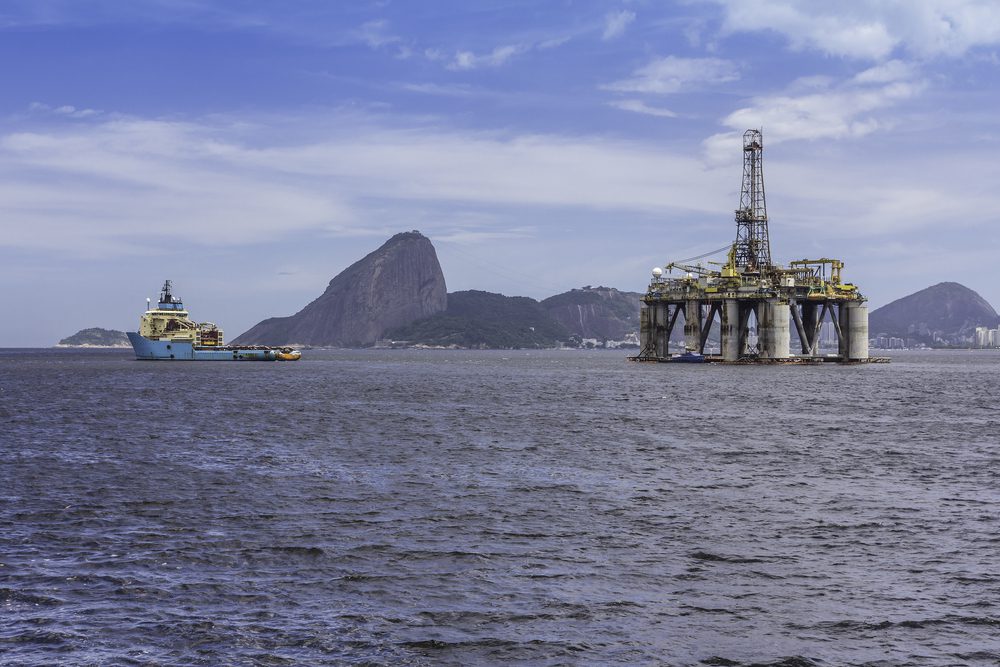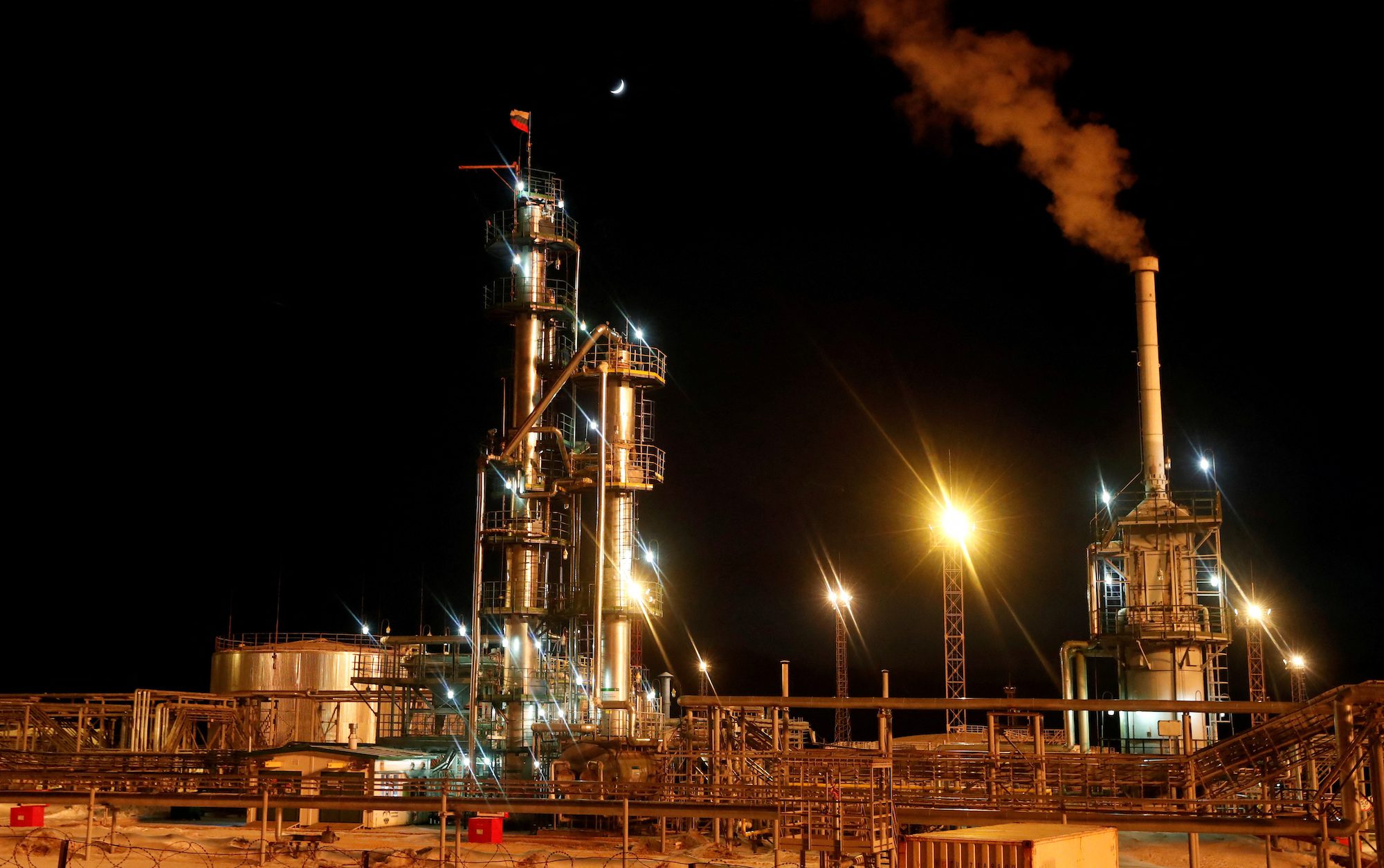Photo: Shutterstock / marchello74
By Sabrina Valle and R.T. Watson (Bloomberg) – Leaner and fitter after three years of low prices, Big Oil is descending on Rio de Janeiro to join a deep-water bonanza that has already helped state-controlled Petrobras emerge from financial heartache.
Output is surging at Brazil’s so-called pre-salt region. This decade it has gone from nothing to 1.3 million barrels a day. Better yet for international oil majors, the country is opening its prized region to foreign operators as part of a wider move to reduce the state’s role in the economy and boost competition. Majors including Exxon Mobil Corp., Royal Dutch Shell Plc, Total SA and Chevron Corp. have signed up for an Oct. 27 bid round.
The billions of dollars of expected inflows from the auction represent a much-needed relief to Brazil and Rio de Janeiro, which has suffered from rising crime and unemployment in the wake of the oil price crash and a widespread corruption scandal that has sent a group of offshore suppliers into bankruptcy.
Brazil expects to lure $36 billion of investments to extract oil from the eight blocks it’s offering, plus $130 billion in taxes and royalties over the life of the projects. Combined signing bonuses are set at 7.8 billion reais ($2.4 billion), and bidders who offer the government the highest share of production win.
Outsiders will have the first chance to operate pre-salt blocks since the country figured out how vast the deposits are, thanks to an easing of nationalist oil policies under President Michel Temer. That’s an important detail for drillers like Exxon who generally prefer to control day to day operations.
Still, Petroleo Brasilerio SA can choose in advance which blocks it wants to operate with a minimum 30 percent stake. It did this for three of the eight blocks. Chief Executive Officer Pedro Parente, who is prioritizing debt reduction, said Oct. 24 that it will be selective in the round.
“For new licensing rounds, by far Brazil is where it’s happening,” said Kjetil Solbraekke, a Rio-based consultant at Rystad Energy. “There will be good turnout, I think the big guys will be there.”
Prices hovering around $50 dollars aren’t as much of an obstacle for oil majors. Deep-water development costs have come down in recent years as suppliers standardize equipment and operators prioritize efficiency gains to curb costs.
Click here to read more about the improved outlook for Big Oil earnings
Petrobras has used its dominant position in Brazil’s offshore market to renegotiate contracts with oil service companies. These steps have generated $4.3 billion in cost savings through 2021, according to Cristina Pinho, Petrobras’s executive manager for subsea systems. the pre-salt has become completely feasible with prices around $50 a barrel, according to Solbraekke, and concerns have shifted to environmental licensing delays and the political outlook.
While Temer has won praise from drillers and financial investors after opening the oil industry and implementing labor reforms, his approval rating is in the single digits amid corruption allegations and he won’t be running in presidential elections next year.
‘Key Supplier’
Brazil has surpassed historic oil suppliers Venezuela and Mexico to become Latin America’s biggest producer.
“Brazil is blessed with significant resources and it can be a major force in supplying the world,” Javier La Rosa, the head of Chevron Corp.’s operations in the country, said at an industry conference in Rio on Wednesday. “It has the potential to actually be a key world supplier.”
IHS Markit Ltd., an energy consultancy, sees potential for Brazil to continue expanding production if it continues offering exploration tracts on a regular basis. The country could reach nearly 6 million barrels a day in 2030 if it follows through on the bid rounds it has planned for the next two years, said Ricardo Bedregal, IHS’s head of Brazil.
Four of the eight blocks on offer on Friday have reserves that are geologically connected to existing discoveries, reducing the risk of drilling a dry hole. There is also huge potential at the other four blocks and they should draw strong competition, Bedregal said.
“If you look at the pipeline for 2017, these are the assets that have the lowest risk from a geological perspective and they should attract a relatively high level of interest,” Giacomo Romeo, an analyst at Macquarie Bank Ltd., said by telephone from London. “It’s very difficult to compare this auction with anything we have seen before.”
© 2017 Bloomberg L.P

 Join The Club
Join The Club











